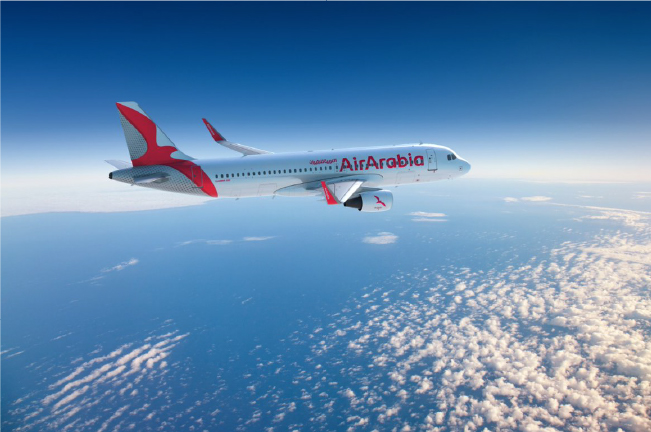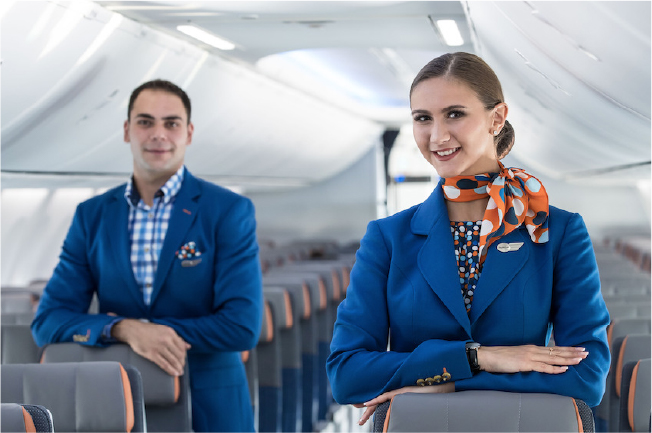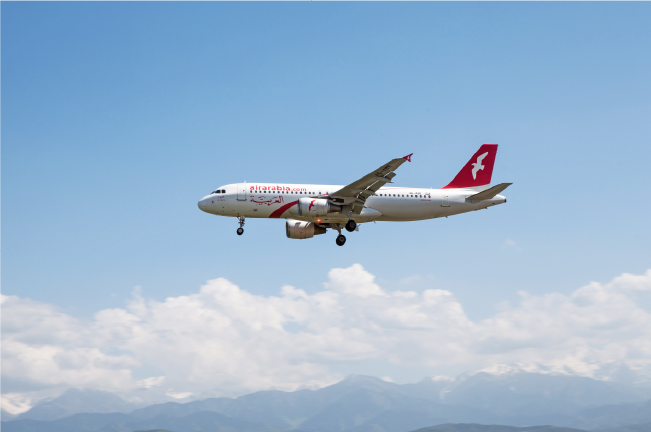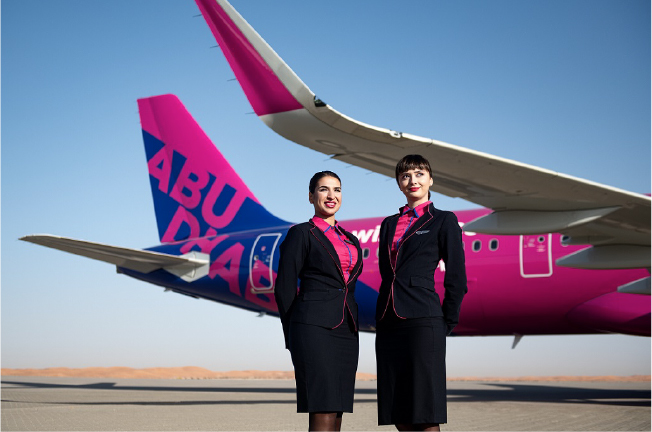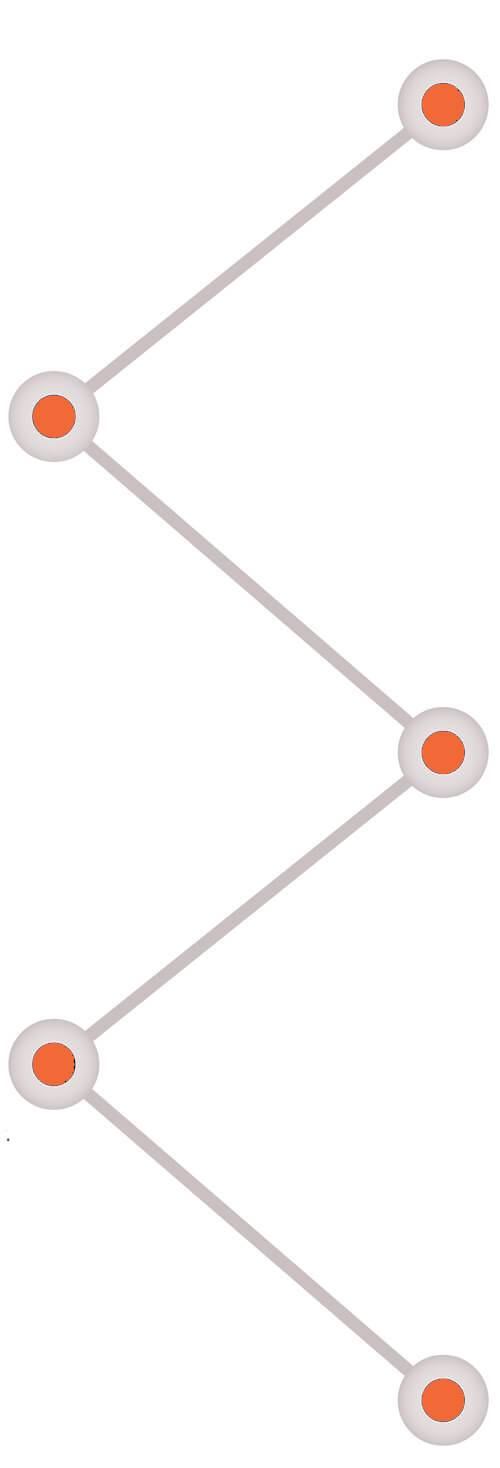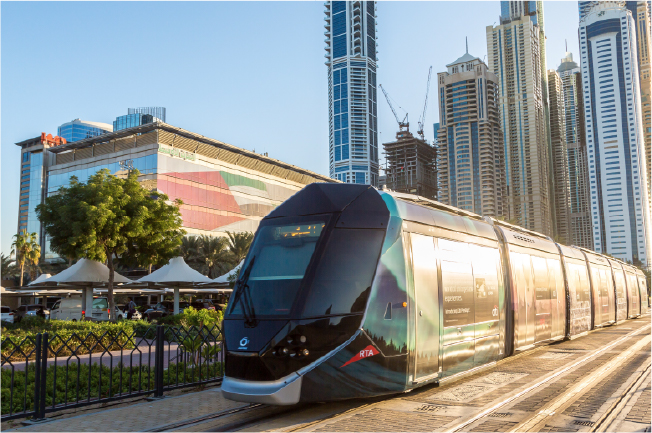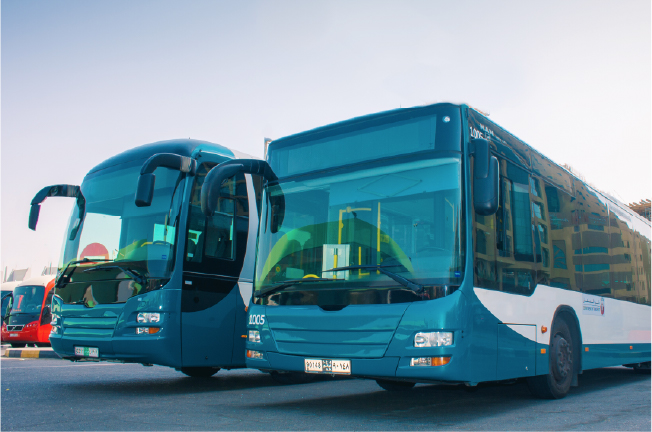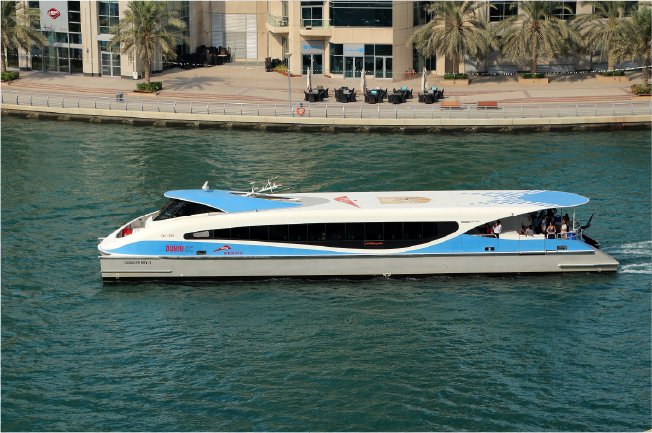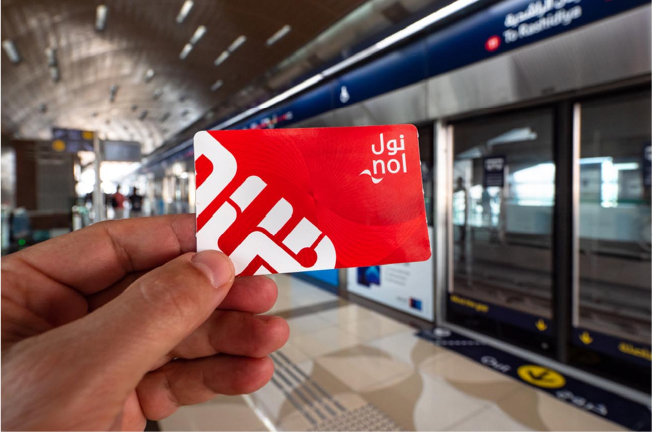
The UAE consists of seven emirates and was founded on 2 December 1971 as a federation, after UK armed forces left the region. Six of the seven emirates (Abu Dhabi, Dubai, Sharjah, Ajman, Umm Al Quwain, Fujairah and Ras Al Khaimah)
Sheikh Zayed bin Sultan Al Nahyan (6 May 1918 – 2 November 2004) was an Emirati royal, politician, philanthropist and the founder of the United Arab Emirates. Zayed served as the governor of Eastern Region from 1946 until he succeeded Sheikh Shakhbut as the ruler of Abu Dhabi in 1966, and then as the first president of the United Arab Emirates while he retained his position as Abu Dhabi's ruler from 1971 until his death in 2004. He is revered in the United Arab Emirates as the Waalid al-Ummah ("Father of the Nation"), credited for being the principal driving force behind uniting the seven Trucial States to found the Union of the United Arab Emirates.
Today, the UAE is a modern, oil exporting country with a highly diversified economy, with Dubai in particular developing into a global city and a hub for tourism, retail, and finance, home to the world's tallest building, and largest man-made seaport.

Although a nation-state, all seven emirates in the UAE are ruled by different UAE royal family. Here's a quick look at the ruling families and the current Emirs of the UAE's seven emirates. The present rulers of all emirates are the descendants of the Founding Sheikhs of the UAE.

His Highness Sheikh Mohamed bin Zayed Al Nahyan
President of the United Arab Emirates & Ruler of the Emirates of Abu Dhabi

His Highness Sheikh Mohammed bin Rashid Al Maktoum
Vice President and Prime Minister of the United Arab Emirates & Ruler of Dubai

His Highness Sheikh Sultan bin Muhammad Al Qasimi
Ruler of the Sharjah and a Member of the Federal Supreme Council of the UAE

His Highness Sheikh Humaid bin Rashid Al Nuaimi III
Ruler of the Emirates of Ajman and a Member of the Federal Supreme Council of the UAE

His Highness Sheikh Saud bin Saqr Al Qasimi
Ruler of the Emirates of Ras Al Khaimah and Chief of the Ruler's Emiri Court in 1979
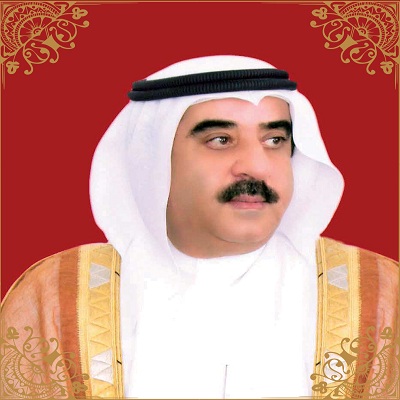
His Highness Sheikh Saud bin Rashid Al Mualla
Ruler of the Emirate of Umm Al Quwain and a Member of the Supreme Council of the UAE

His Highness Sheikh Hamad bin Mohammed Al Sharqi
Ruler of the Emirates of Fujairah and a Member of the Supreme Council of the Union
An Overview
The United Arab Emirates is a federation of seven emirates, with Abu Dhabi as its capital, located in the Western Asia on the Eastern Coast of the Arabian Peninsula. The seven emirates are: Abu Dhabi, Dubai, Sharjah, Ajman, Umm Al Quwain, Ras Al Khaimah and Fujairah. The UAE was founded on 2nd December 1971, and celebrates the day as its National Day every year. The year 2021 coincides with the celebration of the 50th anniversary of its establishment.

Dubai is globally known for its high-quality advanced infrastructure. In earlier times, Dubai used to be famous for fishing, pearl diving and simple agricultural activities. Today, it has emerged as a global trade hub and a major destination on the global tourism map. It gained its global reputation as the ‘City of Gold’, thanks to the booming global gold trade over the past decades.
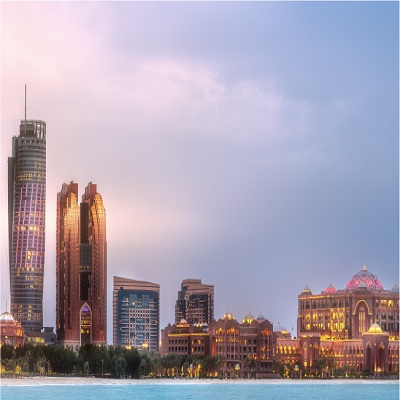
Abu Dhabi is the federal capital of the UAE and the largest of the seven emirates. It comprises three major regions and cities: Abu Dhabi, Al Ain and Al Dhafra. The Emirate of Abu Dhabi accounts for 85% of the total area of the UAE, and it’s one of the top safest cities in the world. The emirate has achieved an unprecedented economic growth in the past fifty years.

Sharjah is the third largest emirate in the UAE, and it is home to vast deserts, beaches and key archaeological sites that spread across the city. Sharjah was crowned the 'Capital of Islamic Culture' and 'Unique and Distinguished Tourist Destination'. It was also named the ‘Cultural Capital of the Arab world’ by UNESCO. Several places in the emirate overlook the Eastern Coast of the Gulf of Oman.
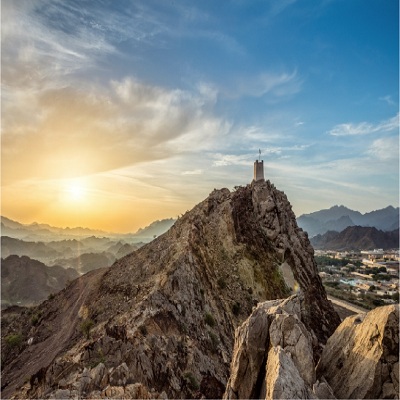
Ajman is situated on the coast of the Arabian Gulf and comprises Manama and Masfout cities, which are surrounded by the captivating Hajar mountain ranges. The emirate boasts many archaeological areas dating back to prehistoric times, as well as several historical archaeological forts. Ajman is known for its diverse natural landscapes of beaches, mountains and valleys.

The Emirate of Ras Al Khaimah is characterised by its captivating natural sceneries, sprawling deserts and towering mountain ranges. It is home to prominent archaeological sites dating back to the third millennium BC. It includes Jebel Jais, the highest mountain in the UAE, and extended palm plantations, and provides an authentic reflection of Arab traditions and heritage. The city offers diverse recreational activities as well.

Umm Al Quwain has its name derived from the phrase Umm Al Quwatain, which refers to its ‘two powers’ of richness of activities on land and water. Today, it is home to major archaeological sites and mangroves that stretch over more than seven kilometres. Al Seniah Island is one of the emirate’s largest islands, hosting a natural reserve for migratory birds in the relatively warm winter.
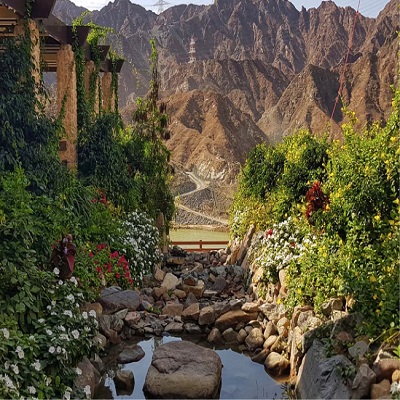
Fujairah is distinguished by its rugged landscape surrounded by Al Hajar Mountains, and hosts a sandy 70-km coastline overlooking captivating sceneries. The emirate receives visitors throughout the year due to its relatively low temperatures during the summer. The city of Fujairah is home to the massive Sheikh Zayed Mosque and a restored 17th-century fort and On the east coast lies the emirate's business and commercial hub
Officially called United Arab Emirates, the country consists of seven individually ruled emirates. Abu Dhabi (with the capital of the same name), Dubai, Ajman, Ras Al Khaimah, Fujairah, Um Al Quwain and Sharjah.
Arabic is the official language in United Arab Emirates however English is widely spoken and written.
The climate of the UAE is subtropical-arid with hot summers and warm winters. The hottest months are July and August, when average maximum temperatures reach above 45° C (113° F) on the coastal plain. In the Al Hajar Mountains, temperatures are considerably lower, a result of increased elevation.
UAE is one of the few Arabic countries where women can travel with almost no interference as long as a certain code of conduct is respected (see i.e. Dress Code). Sit always in the back of a taxi; in Dubai taxis dedicated for women and driven by women are readily available. You recognize them from their pink top. Bear in mind that Arabic women would never travel without a male escort. If asked why you are alone a suitable answer could be that you are visiting family in the country or that you are on an important business trip. Wearing a wedding ring and carrying family photos helps, even if you don’t have a family.
A wide range of public transportation is readily available but the most common way to get around is via taxis. They have many colours depending on the emirate they are registered in. But all taxis must have a sign on the top showing whether they are free or occupied. They all have a meter and if it is not working you just consider the ride to be free of charge, as per the law. Taxis in the UAE are private and it is not allowed to transport any other client along with you. Dubai has additional modes of transport including a metro, monorail, tram, water taxis and public busses that are clean and air-conditioned.
Tourists can drive rental cars using their International driving licenses. Contact us for car rental enquiries or to rent from our fleet of cars.
There are numerous branded restaurants and Michelin star chefs found in Abu Dhabi and Dubai. There is quality food for every discerning tastes and wallet in all the Emirates
The local currency is called UAE Dirham (AED) and there are 100 Fils to 1 AED. Dirhams can be bought at all major airports. There are ATM's throughout all of the emirates. Credit cards are readily accepted. Foreign traveler cheques may be changed at bigger International hotels only; this can be time consuming. It is therefore advisable to arrive with cash, credit cards and traveler checks in USD or Euros.
Pegged exchange rate is:
1 USD = AED 3.675
1 AED = 0.27 USD
The official weekend is Saturday and Sunday from 01 Jan 2022, and Friday being the day for the prayer. Public holidays are calculated as per the moon calendar. Banks open from Monday to Friday between 8.00 – 13.00 h. Branches in larger shopping malls extend from 16.00 - 21.00 h. Government Offices opening times are 7.00 – 14.30 h from Monday – Friday
In case of loss of passport or other official certificates please contact your embassy. We advise carrying a copy of your passport when leaving the hotel and to store the original document in a safe place.
In public spaces, please refrain from wearing shorts and sleeveless tops except when at the beach or by the pool. The general rule to follow is that clothing needs to cover shoulders, upper arms and fall below the knees. This dress code applies to both women and men. By following the recommended dress code you will avoid encountering any issues or offend any of the locals ensuring that you get the most out of your experience.
Whilst visiting a mosque it is important that you avoid wearing any sheer fabrics, short or tight clothing. All trousers and clothing have to be long with sleeves reaching the wrists. Women are required to wear a headscarf and cover their decollete.
Alcohol is sold in bars and restaurants all over the city, but disorderly drunkenness will not be tolerated. There are nightclubs and concerts where people may dance and hook up, but excessive PDAs are a no-no, and you'll get locked up for having a quickie in a public space.
Emiratis are in general a warm and generous group of people, but the population in Dubai is filled with international expats. Areas that have a more concentrated local population also tend to be more conservative, and a tourist may not be welcome. It's not strictly polite to approach a person (particularly a woman) in traditional Emirati attire and strike up a conversation. Some may welcome it, but there are still some more private souls who need to be introduced to someone formally before talking to them. Touch is a sign of familiarity, so if you don't know somebody well, it's best to keep your hands to yourself. Children seem to be able to break through this barrier of etiquette, but if you don't have any handy and you want to meet an Emirati, it's best to visit the SMCCU (Sheikh Mohammed Centre for Cultural Understanding) for a cultural breakfast or lunch. You get a meeting, a feed, and a chat all at once.
Around 80% of Dubai's population are expats, and so you'll find that customs and traditions often cross cultures. Half the population are South Asian, so it's a fabulous place to embrace some Subcontinental culture. Trade across to India has thrived for many years, and so you will find that many of the markets, restaurants, and business districts resemble those you would find there. Although everyone gets along in Dubai, you may notice that cultures tend to stick to themselves and have their place in society. One's race can dictate the field of work, salary level, and managerial level one can raise to. For some visitors this is hard to see.
Homosexuality is forbidden in the UAE. This may come as a surprise, because there are plenty of gay celebrities who are known to have visited the country. But you're not going to be refused entry over it, and the fact remains, that you definitely still have the potential for a great time in Dubai, no matter what your sexual preferences are. As with all kinds of PDAs, keep them for later. It's also probably best not to chat up a same-sex customs officer, or start a gay pride march in the street. Interestingly enough, you may see men strolling down the street holding hands, or kissing each other (on the cheeks) warmly in greeting. This is only a sign of friendship for some cultures, much like a slap on the back.
There are rumors that Jews are not allowed into Dubai. The reality is that there is quite a bit of religious freedom in Dubai, provided there is no attempt at conversion, and there are many Jewish visitors and residents (although synagogues are rare). The UAE, however, does not recognize Israel as a country; therefore, if this is your only passport you will not be permitted a visa, except via a personal appeal to the government. If you are intending on visiting Israel before entering the UAE, it is handy to avoid the Israeli stamp in your passport (not all entry points do stamp), however, officially this should not be a barrier.
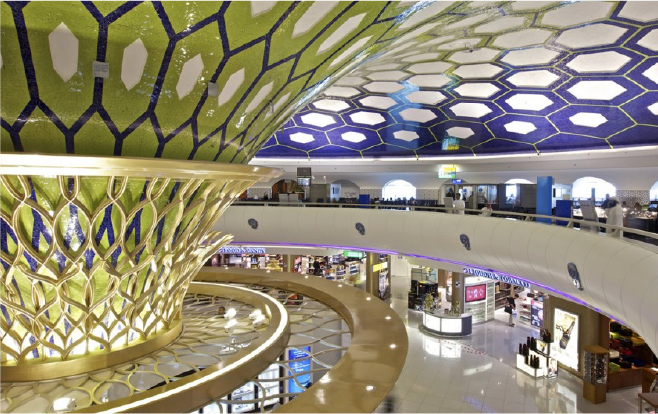
Located in the heart of the UAE capital, in Khalifa City A, offering all services that' meet all travelers needs and requirements.
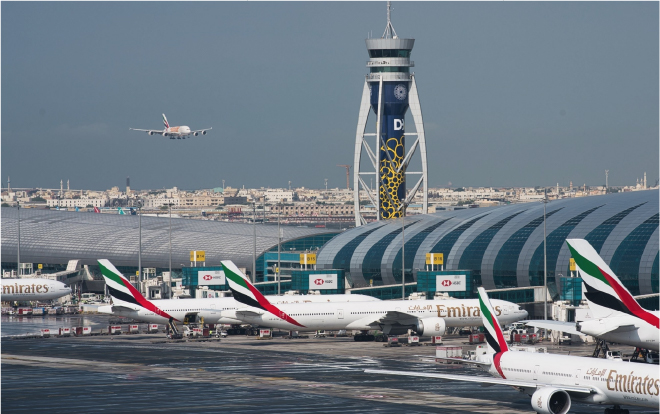
Opened over half a century ago, in 1960, DXB is one the most active airports with highest passenger traffic in the world. Emirates Airline has its hub airport in Dubai International (DXB) and has their own terminal 3. The remote terminal is the hub of the low-cost governmental air company Flydubai and serves, in general terms, limited international flights, local destinations, as well as charter airlines, and special flights in the Terminal 2.

Located near Expo 2020 Dubai site, DWC started operations in 2013.
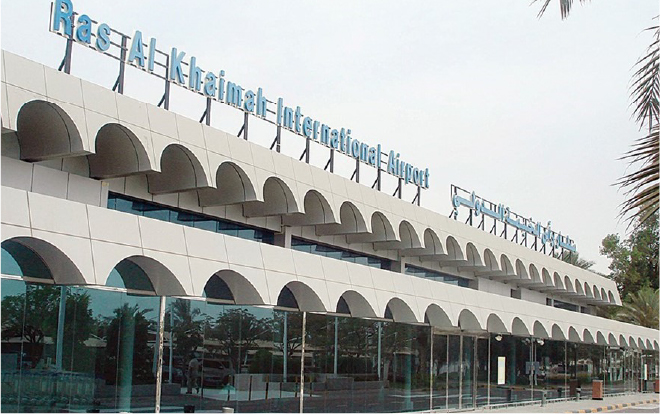
Located near Ras Al Khaimah City, it is one of the major hubs that helps increase tourist traffic to the Emirate.
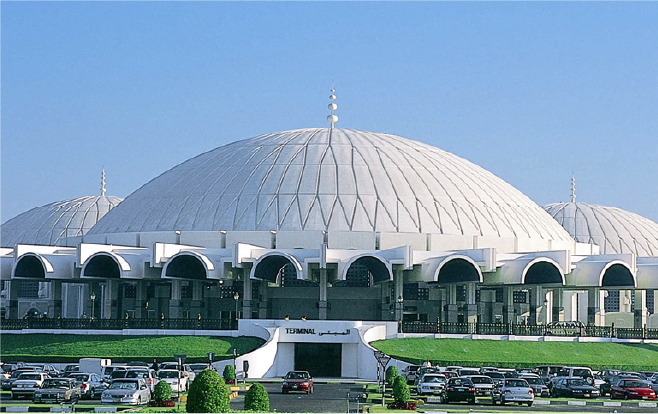
Located 13 Km southeast of Sharjah, it is one of Air Arabia's main hubs.
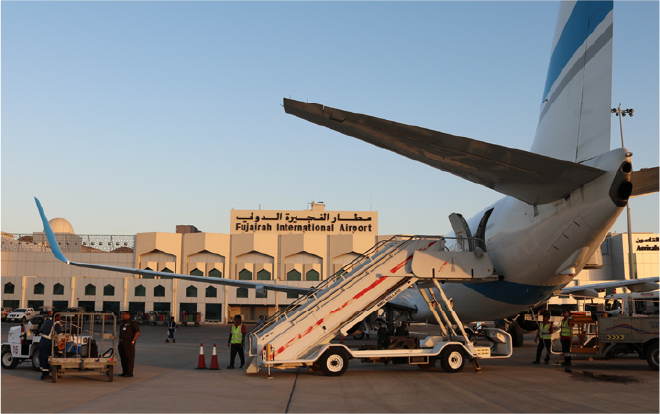
The only national airport located on the East Coast of the UAE.

Strategically located in Al Ain city, Abu Dhabi, it is one of the main gateways supporting the growth of tourism strategic plan in the UAE.
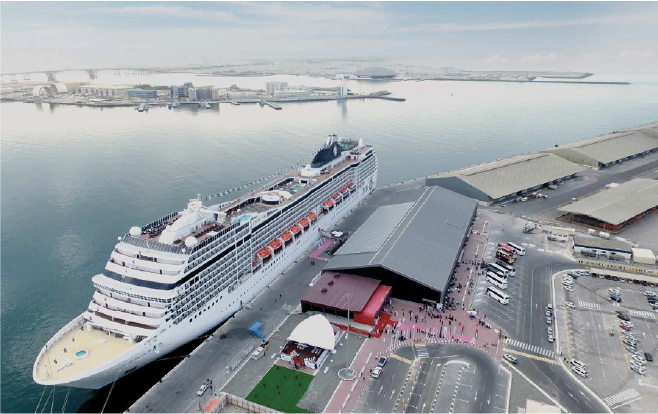
The first permanent terminal for cruise ships in Abu Dhabi, operating from Port Zayd, the oldest port in the Emirate.
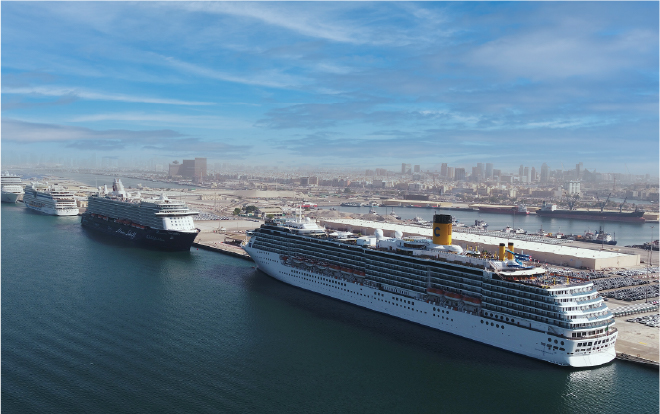
Located at Port Rashid in Dubai, it is one of top luxurious cruise terminals to dock at in the world.
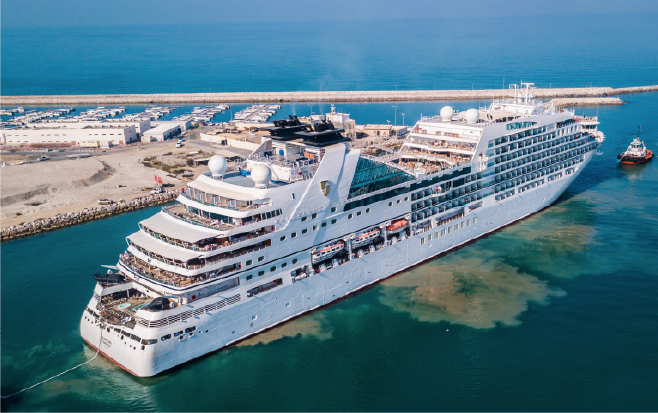
Strategically located in the heart of Ras Al Khaimah, it is an ideal stop in the marine tourism sector.
Etihad, the national airline of the UAE, has been flying to cities across the world since its launch in 2004, from its hub at the Abu Dhabi International Airport.
The flag carrier of the UAE and the largest airline in the Middle East started operation in 1985, and serves the world from its hub at the Dubai International Airport.
Started operations in February 2003 as the Middle East's first low-cost airline, and flies to more than 20 countries from its hub at the Sharjah International Airport.
Dubai's budget airline was founded in 2008, and serves the Middle East, Africa, Asia, and Europe from its two hubs at the Dubai International Airport and the Dubai World Central Airport.

Travelling to the UAE by land is a convenient and safe experience, as the country maintains a high-quality road network with the neighbouring countries, with the transportation infrastructure considered one of the best in the world. The UAE has common borders with the Kingdom of Saudi Arabia and the Sultanate of Oman. There are several entry points to Oman from the UAE along the border. Non-resident tourists from the UAE must obtain an international driving license in addition to a car insurance policy. Visitors coming to the UAE can avail daily bus services to each of the following destinations: Oman, Egypt, Lebanon, Syria and Jordan from Abu Dhabi and Dubai. An entry visa is required to travel to the UAE.
Modern and Diverse Modes of Transportation in the UAE
The UAE boasts one of the most advanced transport and infrastructure facilities in the region. From roads to metro to marine transport, it is home to world-class amenities that support the growth of economy and development of business and tourism in the country. The state-of-the-art public transport network – that includes buses, metro, tram, taxis, and water transport – runs smoothly and offers seamless connectivity within the entire country. The facilities in each emirate are operated by respective government authorities, ensuring easy access and hassle-free travel for passengers.
Smart Ways to Commute
Many smart phone applications guide tourists to cut travel time and find easy routes to reach their destinations. In addition to the Google Maps application, that can be used throughout the UAE, the Seniar application is a unified navigation system in the country providing easy-to-follow directions to help users. Other solutions include Darb website – which uses Geographical Information System (GIS) to help easy travel within Abu Dhabi. The Smart Drive – an on-board route planning app in Dubai; and Makani system – that helps search locations in Dubai through Google and HERE maps, allow planning trips and determining locations in Dubai without the need to connect to the Internet.
Facts and Figures
Transportation in the UAE
in the road quality index in Global Competitiveness Report by World Economic Forum in 2019
In Quality of Air Transport Index according to the Global Competitiveness Yearbook 2023
Public Transport Satisfaction Index, Legatum Prosperity Index Report 2023
Public Transport Satisfaction Index, Sustainable Development Goals Index Report 2023 issued by the Sustainable Development Solutions Network



